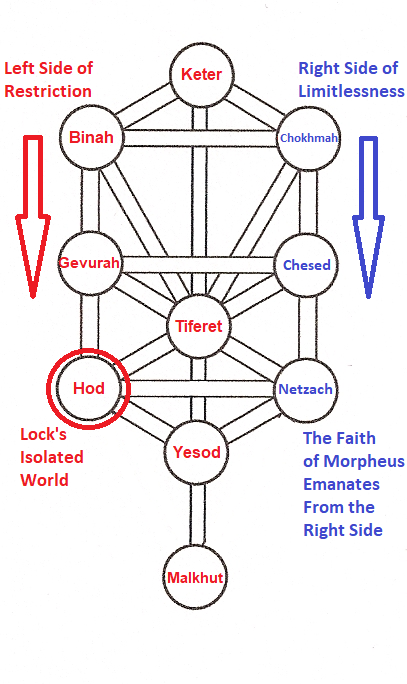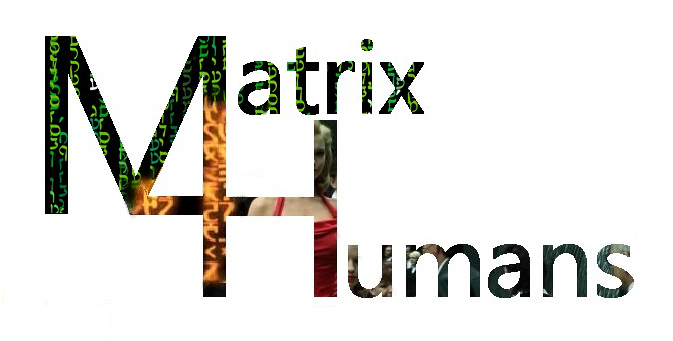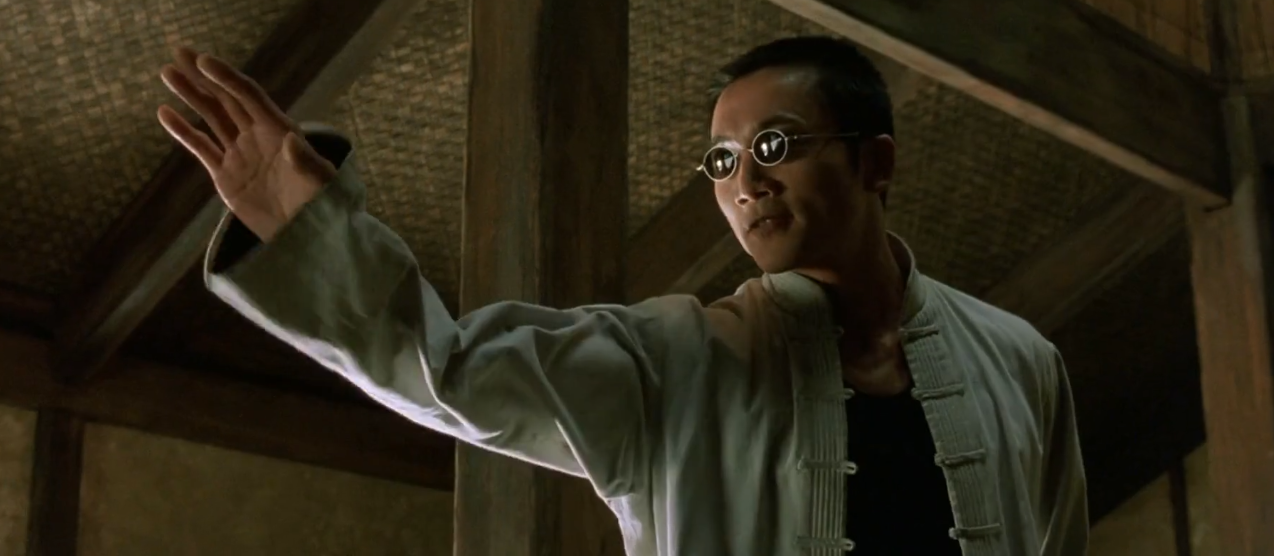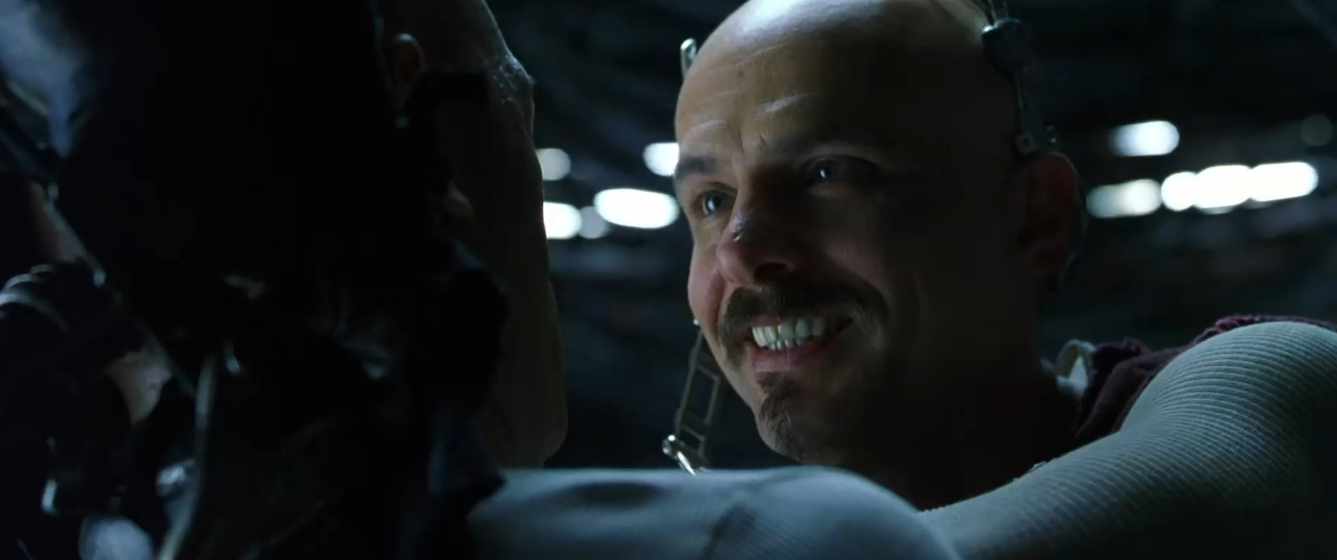Lock: What’s in a Name?
Some of the Matrix character names suit them especially well. This is especially true of Commander Lock (played by Harry Lennix). His decision-making process is ‘locked’ in place.
So what’s the ‘key’ to understanding Lock’s problem?
As mentioned in our Introductory Article, all of the human characters in the movies (and all of us in life) have the complete array of ten emanations. How active each of these is is what gives us our unique personalities and strengths.
Another aspect of this is when an attribute is strong but manifests in a defective manner. This usually occurs when it lacks proper interrelationships with other emanations.
Certain characters like Smith, the Merovingian and Commander Lock are examples. (See the others’ respective profiles.)
Lock falls into the realm of what the Oracle called the inability to “see past the choices he does not understand.” As ‘understanding’ is Binah, and judgment (Gevurah) extends down from Binah on the ‘restrictive’ left side of the Tree of Life, a defect on this side can have strong ramifications.
Really Locked In
Lock’s defect in balanced understanding is seen in his dealings with others.
- When Councilor Hamann allows Neo to take the Nebuchadnezzar, Lock cannot ‘understand.’ He challenges Hamann asking if he (Lock) is still in charge of their military.
- After agreeing to the suggestion to open a gate to allow the Hammer in with its EMP, he blames their crew for “losing the dock” by using the EMP.
- When the Council passed down its decision to send two ships to find Neo, Lock again “cannot understand” and expresses his frustration with them.
- When Niobe volunteers her ship and herself to look for Neo, Lock challenges her, asking what she is doing.
Lock shares a bit of the Merovingian’s ego problem, in making himself the god of his own little world. This is a defect in the attribute of Hod, which when functioning properly, analyzes data according to certain criteria, enabling proper decisions.
When Hod is functioning in isolation, the decision-making practice lacks attachment to the central column of balance and the ability to properly, “seek first to understand, then to be understood” (a famous Stephen Covey concept from his book, “The 7 Habits of Highly Effective People.”)

It is interesting to compare the “right side” perspective of Morpheus which is the expansive side of belief without fear, to the “left side” which Lock cannot escape.
The unmitigated aspect of ‘restriction’ in Lock’s perspective, shows in the way he wishes to keep the people in the dark about the truth of the situation.
From their discussion in The Matrix Reloaded:
Councillor Hamann: Council’s asked me to speak tonight, at the temple gathering. The presence of the fleet and the persistence of rumors must be addressed. The people must be told what is happening.
Lock: Of course, councilor. But might I advise a level of discretion concerning specific details. We do not wish to start a panic.
Councillor Hamann: Quite right. A panic is not what anyone wants. What about you, Captain, what would you advise?
Morpheus: The truth. No one will panic. Because there is nothing to fear. That army will never reach the gates of Zion.
The aspect of ‘fear’ is a product of the left side and antithetical to Morpheus’ qualities and ‘belief,’ from the right.



